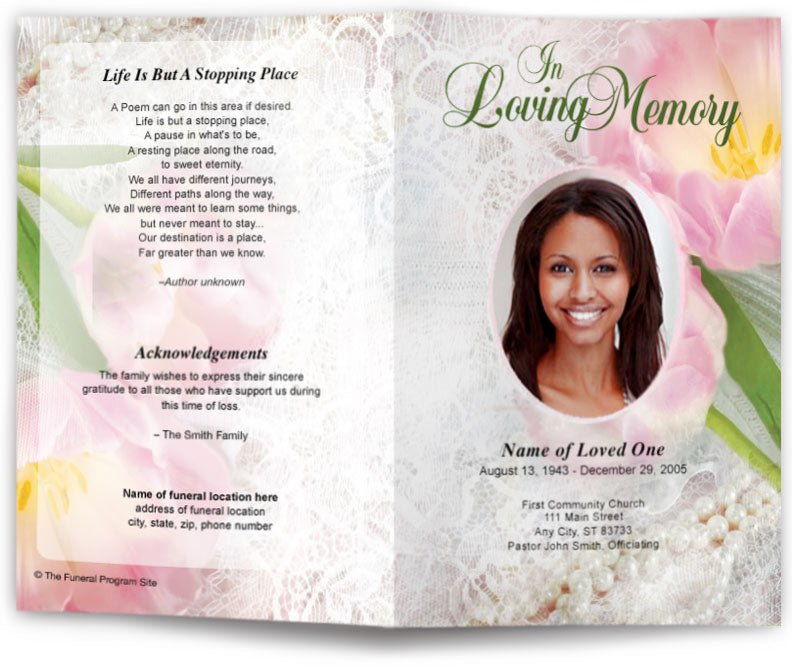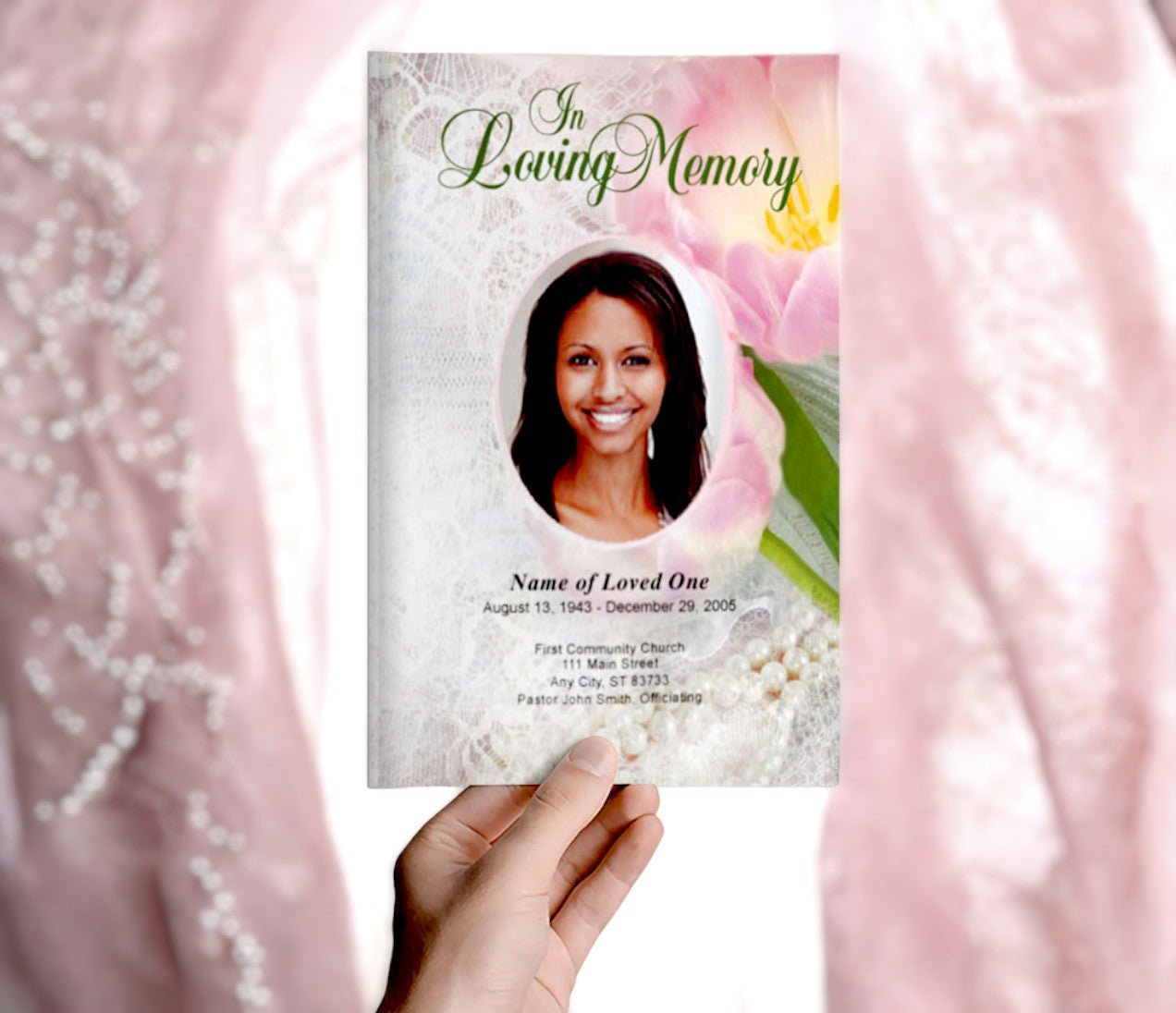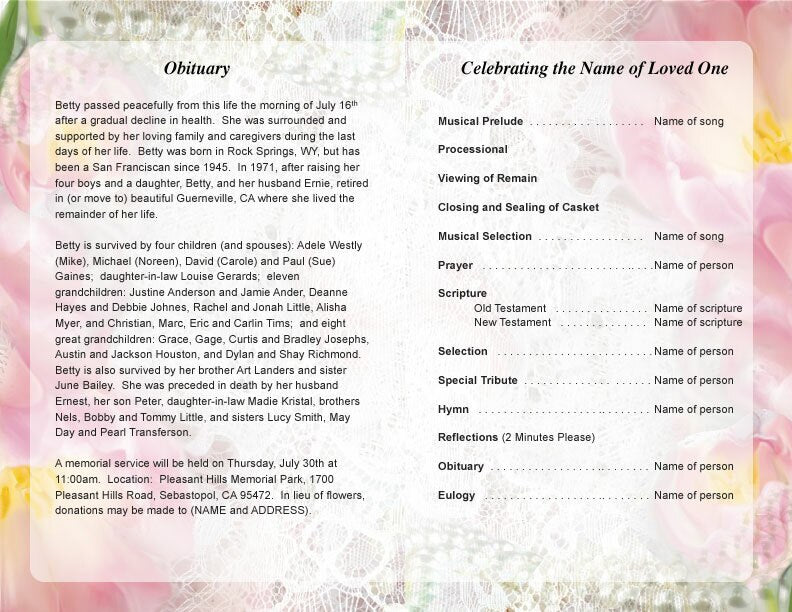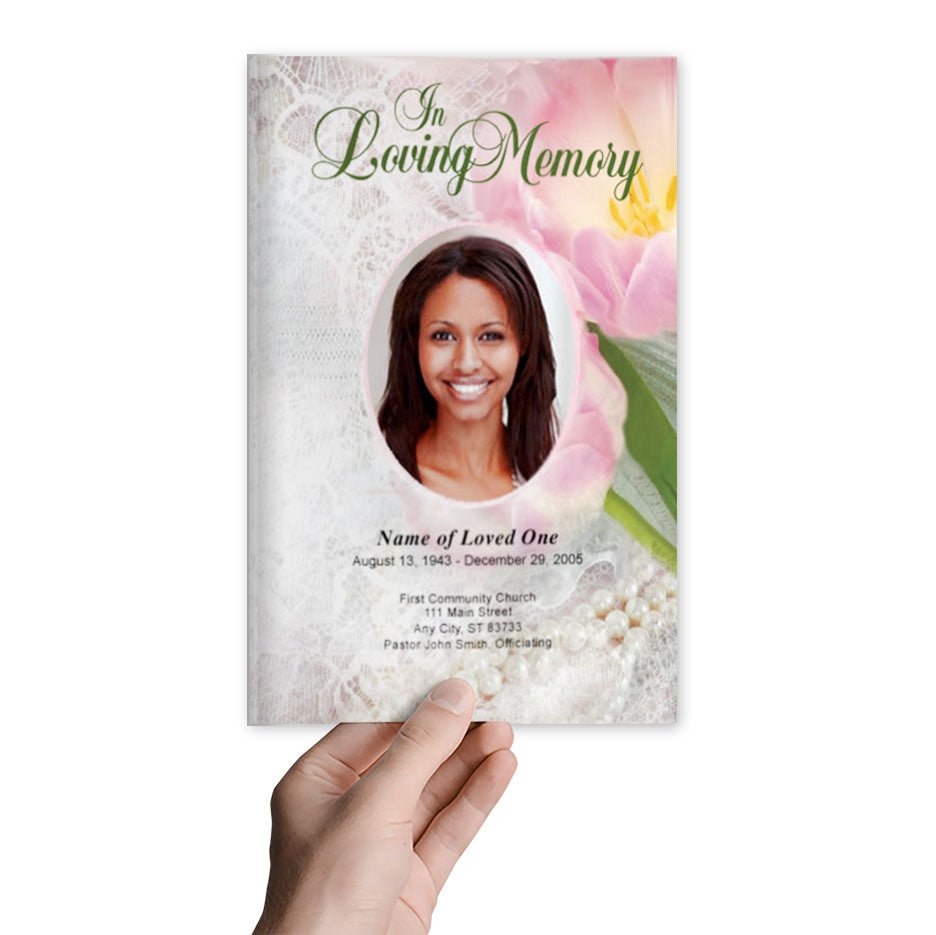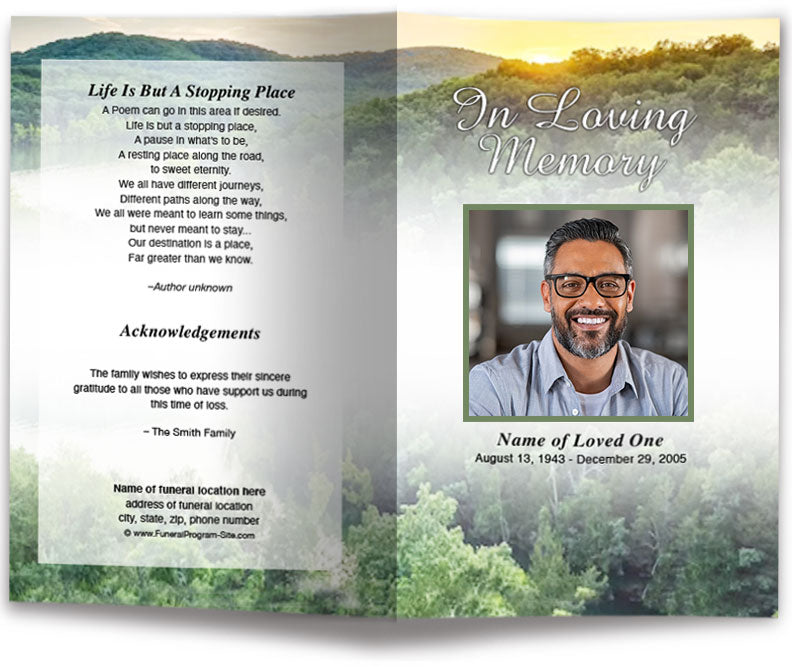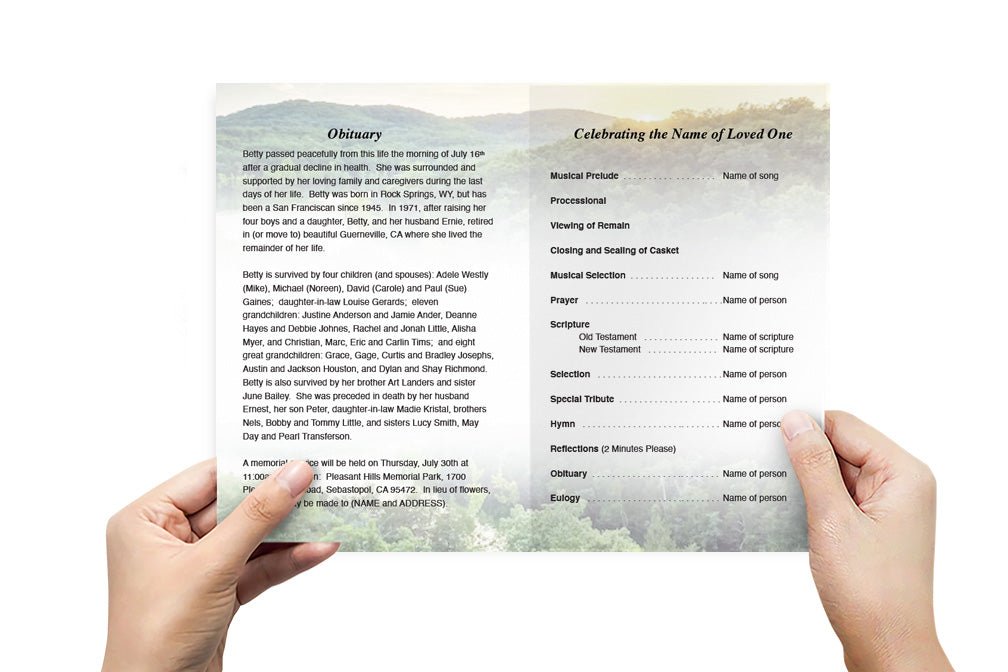What Is The Difference Between A Memorial Program vs. Funeral Program?

In times of grief, finding a way to honor and cherish the memory of loved ones is paramount. Both memorial and funeral programs serve as cornerstones in this process, offering family members and friends a platform to commemorate the lives of those they have lost. Understanding the differences between these two types of programs can help grieving families and those planning services choose the most fitting tribute, aligning with their cultural traditions and personal preferences.
Definition and Purpose
Memorial Program
A memorial program is often used in ceremonies such as memorial services or celebrations of life that occur post-burial. Its primary purpose is to celebrate and remember the deceased. These programs are designed to honor a person's life, reflecting on their achievements, character, and the joy they brought to those around them. Memorial programs focus more on the celebration of the individual's life rather than on their passing, providing a space for joyous remembrance and reflection.
Funeral Program
In contrast, a funeral program is typically held when the body is present. This type of program often involves more traditional elements, such as viewing of the body, religious rites, eulogies, and other rituals which may stem from the deceased's cultural or religious background. The purpose of a funeral program is not only to honor and remember the loved one but also to offer closure and comfort to those who are mourning. It serves as a formal occasion where family and friends can gather to support one another through the process of saying goodbye.
Content and Structure
Memorial Program
Memorial programs can be creatively rich in content, often including a variety of multimedia elements. These programs typically incorporate personal anecdotes, stories, photographs, and video tributes, all highlighting the life and accomplishments of the deceased. Such elements allow participants to engage with the narrative of the loved one’s life, exploring their joys, passions, and memorable moments. This approach fosters an environment that celebrates the unique personality and journey of the deceased.
Funeral Program
A funeral program usually follows a structured format, which may include an order of service, hymns, readings, prayers, and potential music selections that align with religious or cultural practices. While more formal, a funeral program can still incorporate personalized elements such as favorite hymns, readings chosen by family members, and personal tributes during eulogies. These components aim to provide solace and a sense of tradition, supporting mourners through the grieving process with rituals familiar to them.
Timing and Occasion
Memorial Program
One of the key advantages of a memorial program is its scheduling flexibility. These programs are often arranged at a convenient time after the funeral, making it easier for friends and family from afar to attend. This adaptability allows for the inclusion of a broader community, ensuring that those who wish to pay their respects can do so without the constraints of a short notice period often associated with funerals.
Funeral Program
Funeral programs, by necessity, are typically time-sensitive. They are usually held within a few days to a week following the passing. This urgency is largely due to logistical considerations relating to the presence of the body and the need to carry out certain traditional and legal procedures promptly. Nonetheless, this immediacy allows mourners to begin the healing process and find closure more swiftly.
Flexibility and Personalization
Memorial Program
The nature of a memorial program lends itself to a high degree of personalization. Families have the freedom to design a program that truly reflects the personality and life of their loved one. This could include unique tributes such as thematic decor, personalized video presentations, and incorporating favorite activities or interests of the deceased. The flexibility of the memorial program format also allows for creative expressions such as poetry readings, song performances, and storytelling, bringing the deceased’s character vividly to life.
Funeral Program
While funeral programs are generally more structured, there is still room for personalization within the framework of tradition. Families can incorporate personal touches such as specific readings or music that hold meaning for the deceased, or small ceremonies that honor their cultural heritage. Personalized eulogies offer an intimate glimpse into the life of the loved one, creating a poignant and memorable farewell for attendees.
Conclusion
The choice between a memorial program and a funeral program is deeply personal and can significantly influence how loved ones are honored. Understanding these key differences helps families select the program that best celebrates the life and legacy of their loved one. While memorial programs offer a more flexible and celebratory approach, funeral programs provide a structured and traditional farewell that emphasizes comfort and closure. Regardless of the choice, both programs serve the essential function of bringing people together to remember, honor, and find solace in the shared experience of love and loss.










